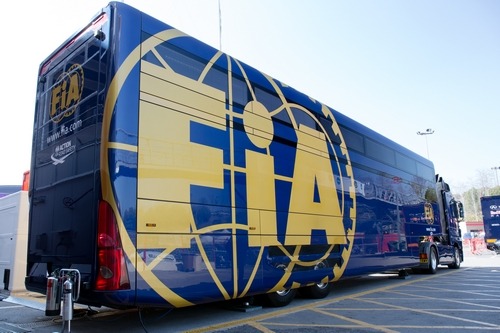
The Visa Cash App RB Formula One Team has broken Formula One’s unwritten rule. Now we are stuck with the nagging question of what to actually call the team formally known as AlphaTauri.
Last week, AlphaTauri announced a rebranding that changed the team name to Visa Cash App RB Formula One Team as part of a sponsorship with Visa. The name change didn’t come as a surprise, as the team had registered the name late last year, but it did draw criticism from fans for being one of the worst team names in recent history.
For the first time in recent memory, we are now faced with a team that has elected to put focus on their title sponsors rather than their own identity.
Of course, title sponsors are nothing new and they are a part of most teams on the grid. They are an important aspect of Formula One, playing a vital role in funding the teams we all love. In return, the sponsor is often rewarded with large sponsorship badges on team equipment, marketing events and driver endorsements, recognition in the team’s full name, and sometimes even heavy influence over the car’s livery.
But the unwritten rule in Formula One has always been that a team must have an actual name. Something they can be referred to as in the media and TV broadcasts. The absence of a team name has created a particular challenge when it comes to fairness.

If the media begins to call the team “Visa RB”, “Visa F1” or even “V-CARB”, which has gained a lot of traction on social media, that gives the team’s title sponsor additional promotion that other title sponsors are not normally given. The media doesn’t say “Oracle Red Bull Racing”, “BWT Alpine”, “MoneyGram Haas” or “Mercedes Petronas”. They say “Red Bull”, “Alpine”, “Haas” and “Mercedes”.
Although, some may argue that “Red Bull”, “Ferrari”, “Mercedes”, “Alpine” and other teams named after their corporate owners are no different than title sponsors, I disagree. Those are team names created by the companies that own the team. These are not companies just paying for advertising on a team.
Up until recently, it was believed that AlphaTauri would actually become “Racing Bulls”. Red Bull even went as far as registering a trademark last year for the name and creating a website. However, the team’s press release announcing the new name makes no reference to “Racing Bulls”, nor does it assign any meaning behind “RB”.
It’s possible that dropping the “Racing Bulls” brand in favour of “RB” was a scheme to get their title sponsors more publicity, potentially hoping that fans and the media would resort to simply calling the team “Visa F1” or something similar. That may seem like quite a conspiratorial theory, but it would be a good way entice Visa to partner with them.
This is a dangerous precedent to set and it’s time for the FIA to intervene. They need to put their foot down and introduce regulations regarding team names. All teams should be required to have an actual name, along with any title sponsors they wish to have.
If they don’t act, people will begin to use the team’s title sponsor as shorthand. It won’t take long before other sponsors demand the same treatment. Then, soon enough, the TV broadcasts will be plagued with mentions of sponsor names.
“And Max Verstappen puts his Oracle Red Bull Racing car around the outside of Lewis Hamilton’s Mercedes Petronas to take the lead!”
So, what do we call the new Visa Cash App RB Formula One Team?
To me, the answer is simple. The only answer is “RB”. Sure, it sounds silly and doesn’t roll off the tongue particularly well, but that is the name they chose. They made their bed and now they must lie in it.
The views and opinions expressed in this article are solely those of the author and do not necessarily reflect the official policy or position of any other agency, organization, employer or company. Assumptions made in any analysis contained within this article are not reflective of the position of any entity other than the author.